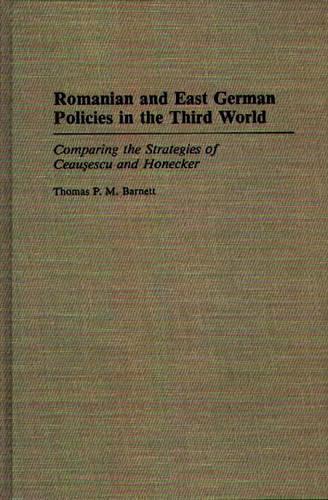
Romanian and East German Policies in the Third World: Comparing the Strategies of Ceausescu and Honecker
(Hardback)
Publishing Details
Romanian and East German Policies in the Third World: Comparing the Strategies of Ceausescu and Honecker
By (Author) Thomas PM Barnett
Bloomsbury Publishing PLC
Praeger Publishers Inc
17th September 1992
United States
Classifications
Tertiary Education
Non Fiction
Central / national / federal government policies
327.1
Physical Properties
Hardback
200
Description
This text compares the Third World policies of the two East European regimes that were most active in the South during the 1970s and 1980s. The study examines why Romania's and East Germany's high activity levels in the South cannot be explained away as mere surrogacy for Moscow, and shows that those attempts represented the particular agendas of Honecker and Ceausescu in their efforts to alter their ties with the Soviet Union. Barnett concludes that Romania and East Germany saw opportunities in the Third World in the 1970s to forge strong diplomatic and security profiles within the Warsaw Pact's overall presence. Romania sought to lessen its economic and ideological dependence on the Soviet Union by expanding its trade ties and political relations with the Third World. In the case of East Germany, detente opened up new opportunities for relations with West Germany that were both lucrative in terms of trade and dangerous in terms of ideological "pollution". Scholars of the Soviet bloc will find this book of interest.
Author Bio
THOMAS P.M. BARNETT serves on the research staff of the Center for Naval Analyses in Alexandria, Virginia. He writes on issues relating to arms control, U.S. foreign policy, Soviet and Russian affairs, and international security.
